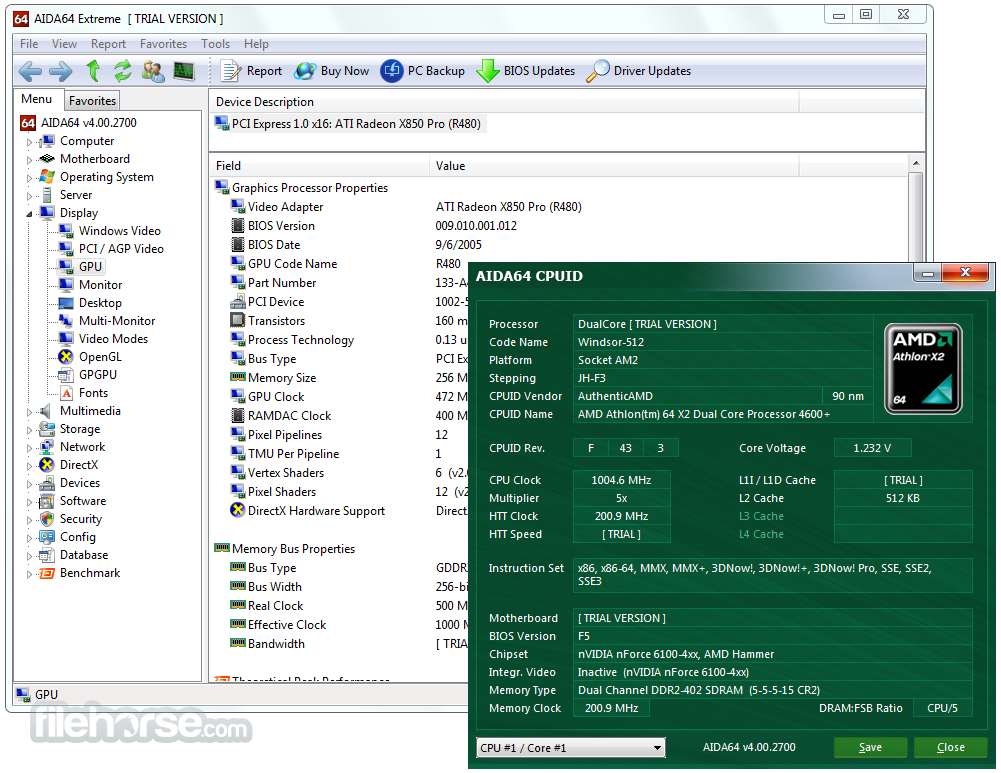

That means that there's a ton of personal and financial information floating around on the web - yours included - so ensuring your online privacy is more important than ever. People all over the world use the internet on a daily basis, hopping online for everything from work and school to shopping, social networking, investing, and paying bills. How to see what kind of CPU you have without opening your computer Nearly $1M in PC parts are up for grabs, but you probably can’t buy anything Using AIDA64 Extreme, whether your an expert PC tinkerer or a novice user, you’ll be able to confidently tell anyone you come across what exactly your PC is packin’. A couple of the fields will be blocked out with the message “,” but the trial version of AIDA64 Extreme will reveal most of the important stuff anyway. Once you click Summary, AIDA64 Extreme will generate a simple report that provides you with oodles of information about your PC, including CPU and GPU make/model, how many cores your CPU has, and much much more. On the left hand side of AIDA64 Extreme, you’ll find a column with multiple entries, including “Computer,” “Motherboard” and “Operating System.” Click on Computer, and to the right of that, click on the icon labeled “Summary.” It’ll eventually plop a windows in front of you that looks something akin to the Control Panel. Once you download AIDA64 Extreme, which you can do so from here, run it, and it’ll perform a scan of your system. How to find out what parts are in your PC with AIDA64 Extreme Once you have it up and running, AIDA64 Extreme will perform a scan of your PC and spit out a report that details what components your PC has, including CPU, graphics card, hard drive and much more. AIDA64 Extreme will also clue you in on how much RAM your system has, the makes and models of your USB connected gear (like printers, webcams, etc) and other details. Enter AIDA64 Extreme, a program that will give you a pretty clear picture of what’s in your PC.ĪIDA64 Extreme isn’t free (the full version costs $39.95), but does include a 30-day trial that’s perfect for these purposes. On the other hand, if they know what your rig is packing, they can also tell you if you’re due for an upgrade in one area or another. It’s worth knowing these things because, though whether such details matter varies from one person to the next, if you’re not exactly a fiend for PC components, being able to tell the more tech savvier buddies in your life what processor and GPU you’re wielding could help them advise you on whether you should stand pat. Some may know what CPU they have, but not know the make and/or model of their graphics card, hard drive, and so on. Though some PC users may know the insides of their systems like the backs of their hands, not everyone is completely up to date on what components reside within their rig’s cases.


 0 kommentar(er)
0 kommentar(er)
